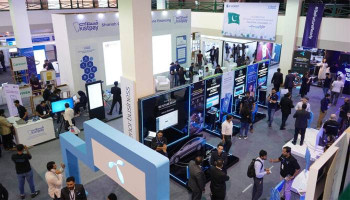
Pakistan is under external pressure not to pass its long-awaited Personal Data Protection Bill, officials revealed during a Senate Standing Committee on IT and Telecom meeting on Thursday.
The committee, chaired by Senator Palwasha Khan, was told that consultations on the draft law are still ongoing. Senator Afnanullah of the PML-N warned that delaying legislation was costing Pakistan billions in data theft.
“Data theft has become a billion-rupee black market. If no law is made, the country will continue to suffer massive losses,” he cautioned.
Pakistan Telecommunication Authority (PTA) Chairman Major General (retd) Hafeezur Rehman confirmed that citizens’ data is often posted on the dark web. He mentioned that data from 300,000 Hajj applicants had been disclosed, and he called for a high-level investigation. He also noted a probe which was initiated in 2022 already is in the hands of the interior ministry.
Committee members expressed concern about allegedly excessive allowances to members of the board of directors of state-owned telecommunication firms, and its chairman, Senator Kamran Murtaza, joked that the Senate could apply to be on those boards.
The chairman also stated a need to be transparent when deciding on appointments for the boards of PTCL and Ufone, and the public agrees.
Internet down in Pakistan
Separately, the National Assembly Standing Committee on IT was informed that internet speed in Pakistan has slowed as a result of several submarine cables being cut off the coast of Yemen. IT Secretary Zarrar Hashim Khan said four to five cables had to be cut, including two that provide service to Pakistan.
Telecom operators have moved bandwidth to alternate routes, and it may take up to four to five weeks before full service; however, full service will be available. The committee was briefed that three new submarine cables directly linking Pakistan with Europe will come on-stream in 12–18 months.
















